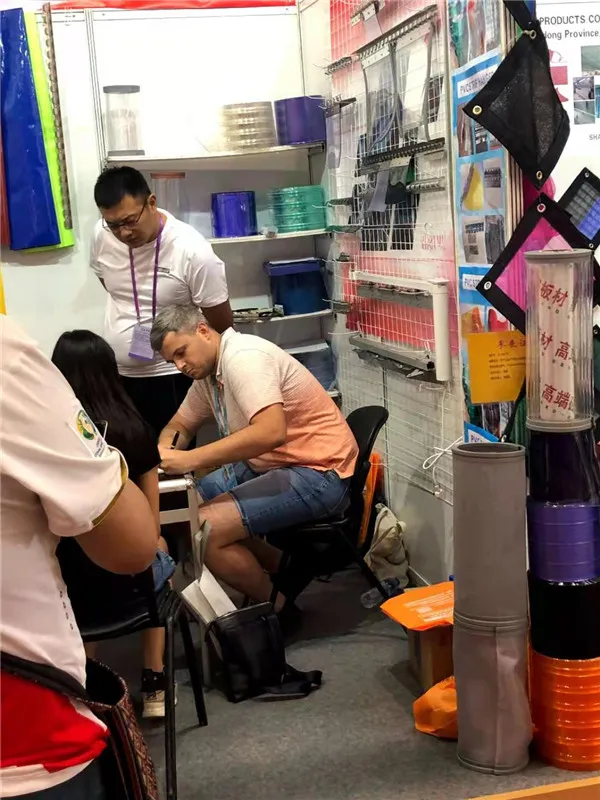pvc soft film
The Versatility of PVC Soft Film Applications and Benefits
Polyvinyl chloride (PVC) soft film is a type of flexible plastic that has become increasingly popular in various industries due to its excellent properties and versatility. This material is made from PVC resin, which is blended with various additives to enhance its flexibility, durability, and resistance to environmental factors. In this article, we will explore the characteristics of PVC soft film, its applications, and the benefits it offers.
Characteristics of PVC Soft Film
One of the most notable features of PVC soft film is its flexibility. Unlike rigid PVC, soft PVC is pliable and can be produced in a range of thicknesses, making it suitable for various applications. Additionally, it boasts high tensile strength, tear resistance, and a good degree of transparency. This combination of properties makes PVC soft film an ideal choice for products that need to withstand physical stress while maintaining aesthetic appeal.
Another significant characteristic of PVC soft film is its resistance to chemicals, oils, and ultraviolet (UV) light. These properties ensure that products made from PVC soft film can endure exposure to harsh environments without degrading. Furthermore, PVC soft film is easy to print on, allowing for vibrant colors and designs, making it a popular choice for branding and promotional materials.
Applications of PVC Soft Film
PVC soft film can be found in a wide range of applications across various industries. One of the most common uses is in the packaging sector, where it is employed to create wraps, bags, and containers. The flexibility and durability of PVC soft film make it ideal for protecting products while providing a visually appealing presentation.
pvc soft film

In the medical field, PVC soft film is utilized to manufacture medical bags, tubing, and intravenous (IV) containers. Its ability to maintain sterility while being lightweight makes it a preferred material for healthcare providers. Furthermore, PVC soft film is often used in the production of disposable products, ensuring hygiene and safety for patients.
Another noteworthy application of PVC soft film is in the construction industry, where it is used for insulation and protective sheeting. Its resistance to moisture and chemicals makes it suitable for protecting buildings from environmental elements. Additionally, PVC soft film is used in signs and banners due to its printability and weather resistance.
Benefits of Using PVC Soft Film
The advantages of PVC soft film extend beyond its physical properties and applications. One of the key benefits is its cost-effectiveness. Compared to other flexible materials, PVC soft film is relatively inexpensive to produce, which makes it attractive for manufacturers looking to reduce costs without compromising quality.
Moreover, PVC soft film is recyclable, contributing to sustainability efforts. With growing environmental concerns, industries are increasingly seeking materials that can be repurposed or recycled, and PVC soft film fits this criterion. By integrating recycling practices, companies can minimize their ecological footprint while still benefiting from the usability of PVC soft film.
In conclusion, PVC soft film is a remarkable material that offers an array of benefits, making it a go-to choice for many industries. Its flexibility, resistance to chemicals, and printability open up numerous possibilities, from packaging to medical applications. As sustainability becomes a focal point in manufacturing, the recyclability of PVC soft film further enhances its appeal. As we continue to innovate and seek out versatile materials, PVC soft film is sure to remain a staple in various sectors.
-
Durable Welding Strip Curtain Rolls for Safety & EfficiencyNewsAug.21,2025
-
Heavy Duty Cold Room PVC Strip Curtains - Energy Efficient SolutionsNewsAug.19,2025
-
Durable PVC Curtain Track - Easy Install & Smooth GlidingNewsAug.18,2025
-
Durable PVC Strip Curtain Hanger | Stainless Steel MountNewsAug.17,2025
-
PVC Folding Curtain: Space-Saving & Stylish PrivacyNewsAug.16,2025
-
Industrial Roll Up Curtains | Durable & Clear PVC SolutionsNewsAug.15,2025



